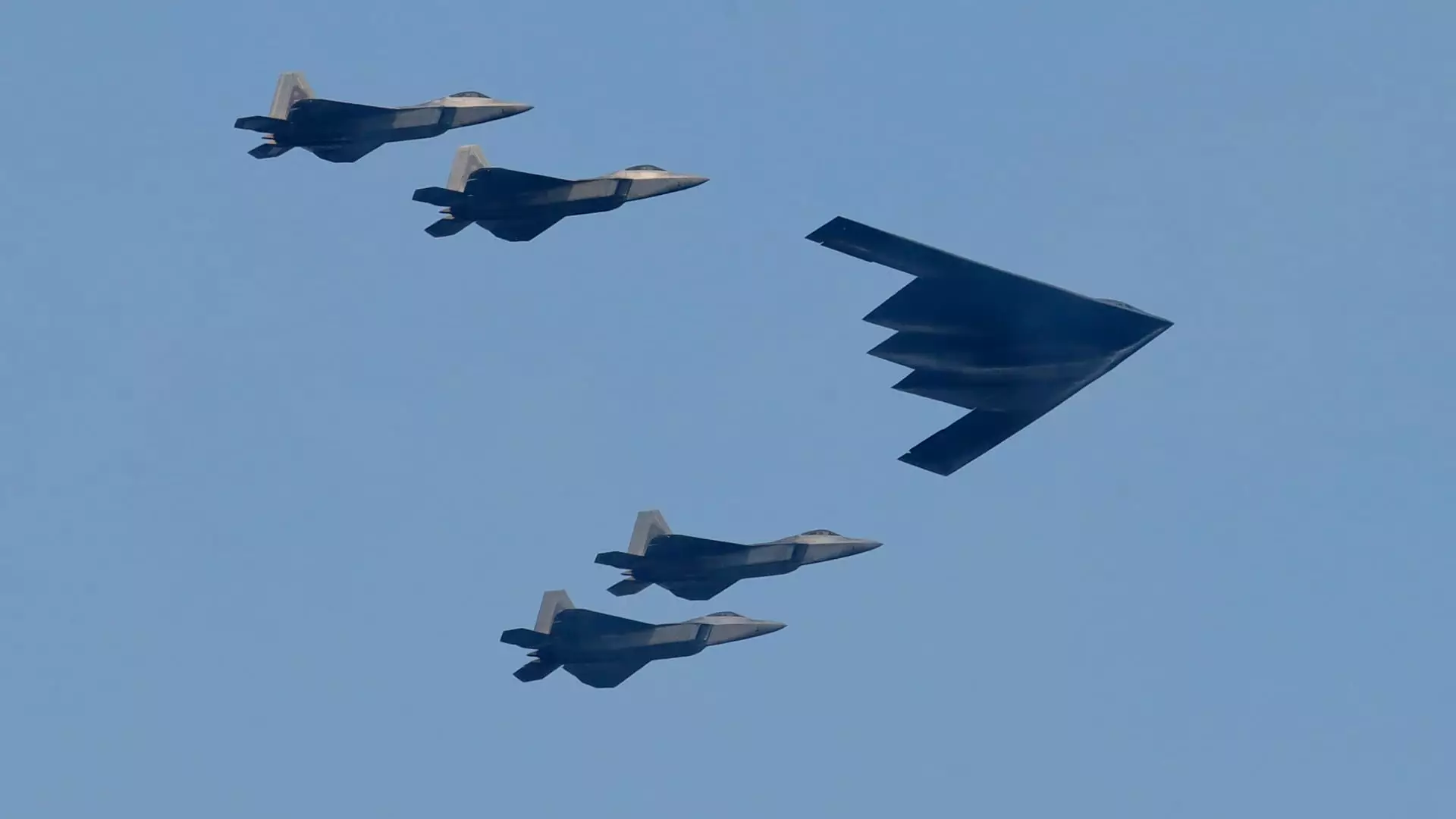When President Donald Trump boasted on Truth Social about a “very successful attack” on Iranian nuclear sites, he stepped into the treacherous waters of international politics with a level of bravado that is both alarming and misguided. His declaration of this military action as an “HISTORIC MOMENT” not only underscores his administration’s penchant for hyperbole but also gives insight into a worldview that prioritizes military might over diplomatic tact. The implications of these strikes, particularly in a region that has long been a flashpoint for conflict, risk igniting further instability and displacing the focus on peaceful resolutions. Such a reckless gamble is emblematic of a larger issue within Trump’s foreign policy approach: the belief that military power can effectively solve complex geopolitical conflicts.
Global Leaders’ Divided Reactions
Responses from global leaders have been predictably polarized, reflecting both the political divisions at play and the underlying fear of further escalation. Israeli Prime Minister Benjamin Netanyahu embraced the attack, heralding it as a transformative moment for peace. This viewpoint echoes the longstanding Israeli sentiment that might must precede diplomacy, a dangerous philosophy that often leads to a relentless cycle of violence rather than constructive dialogue. Nevertheless, the stark contrast between Netanyahu’s optimism and the appalled reactions from other world leaders illuminates the differing strategies in global governance.
For instance, United Nations Secretary-General Antonio Guterres voiced deep concerns about the risks posed by such military actions. His insistence that “there is no military solution” signifies a critical acknowledgment of the broader human cost associated with conflict—an aspect often lost in the rhetoric of strength championed by leaders like Trump and Netanyahu. Guterres rightly advocates for diplomacy as the sole viable path forward, emphasizing a perspective that champions resolution over warfare.
Condemnations from Across the Globe
International condemnation has poured in from countries like Venezuela and Cuba, both vocally affirming their opposition to the military strikes. Venezuela’s Foreign Minister Yvan Gil articulated that the bombing constitutes a violation of international law and the UN Charter, highlighting the moral and legal ramifications of America’s aggressive posture. Such responses are not merely political posturing; they reflect a genuine concern over the rules-based international order that has been established to prevent further conflicts.
Cuba’s President Miguel Diaz-Canel echoed a similar refrain, fortifying the idea that military aggression ultimately plunges humanity into catastrophic crises. Herein lies a significant point: the counterproductive nature of military action is increasingly acknowledged even among nations often perceived as adversarial to the U.S. This collective voice of dissent serves as a reminder that the global community remains wary of unilateral military interventions that disregard international norms.
The Call for Dialogue
In stark contrast to the militaristic rhetoric from some quarters, Mexico’s Ministry of Foreign Affairs urged for “diplomatic dialogue for peace.” This appeal to de-escalation and communication resonates deeply with a contemporary understanding of conflict resolution that has eluded many leaders. It positions dialogue not as a weakness but as a strategic imperative for lasting peace—a viewpoint that unfortunately seems lost on those who advocate for immediate military action.
As world leaders convene emergency meetings and formulate responses to this episode, there is a palpable tension that underscores the reality that major powers are seldom in agreement. The divided reactions emphasize a fracture in the international order, one that threatens to unravel years of diplomatic efforts aimed at promoting stability and cooperation.
A Prelude to Chaos
Ultimately, Trump’s declaration of strength through aggression echoes a philosophy that has historically resulted in devastation rather than peace. The conflicting narratives laid out by global leaders reflect a world on edge, teetering between the allure of military might and the fragile necessity of diplomatic dialogue. As this precarious situation unfolds, it is clear that the path forward will demand an unprecedented commitment to understanding and collaboration—principles that have, regrettably, been sidelined in the rush toward aggression. The question looms: will wisdom prevail, or will we leap into a dark abyss wrought by reckless decisions?


Leave a Reply